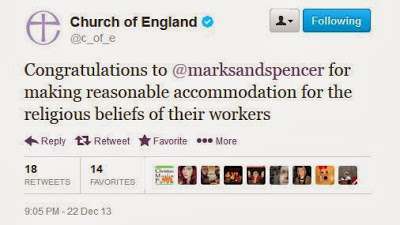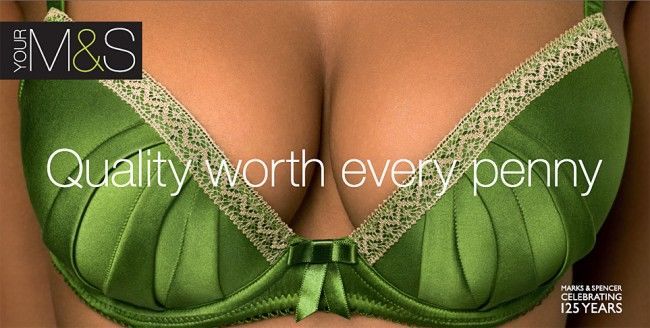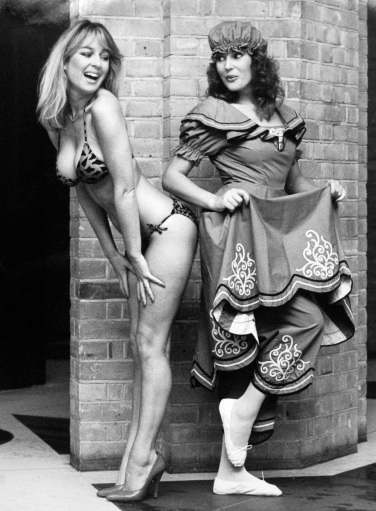Church of England Supports Marks & Spencer Sharia Checkouts But Not Christians Refusing To Serve Halal

THERE has been something of a furore over Marks & Spencer’s announcement that henceforth Muslim staff on their checkouts will be permitted to decline to serve M&S customers who purchase alcohol or pork, writes Cranmer. That is to say, M&S customers will either be asked to queue at a checkout where the employee does not object to serving kuffar (however much longer the queue), or they will have to wait while M&S find a member of staff who is prepared to serve you.
His Grace really wasn’t going to write on this matter (it being the Season of Goodwill, and all), but the Church of England decided rather foolishly to tweet its commendation to M&S for “making reasonable accommodation for the religious beliefs of their workers”, which really needs a response.
This policy appears to emanate from one incident:
At one of its stores in central London last week, customers waiting with goods that included pork or alcohol were told by a Muslim checkout worker to wait until another till became available. The assistant was extremely apologetic at having to ask customers to wait.
One customer, who declined to be named, said: “I had one bottle of champagne, and the lady, who was wearing a headscarf, was very apologetic but said she could not serve me. She told me to wait until another member of staff was available.
“I was taken aback. I was a bit surprised. I’ve never come across that before.”
Customers trying to buy alcoholic drinks for Christmas were also asked to wait.

* Marks & Spencer started life more than 125 years ago when the Jewish immigrant Michael Marks (above) came to the north of England from his hometown of Slonim, Belarus. He arrived with little money and spoke poor English. Beginning as a pedlar, he soon owned a market stall in Kirkgate Market in Leeds. He classified everything by price, but quickly stopped selling more expensive items when the penny section thrived.
Michael decided to look for a partner to help manage his growing business. He initially approached Isaac Dewhirst, who had loaned money towards his original start up costs. Isaac declined but recommended Tom Spencer – his senior cashier. Tom agreed, and on 28 September 1894 Marks & Spencer was born.
And M&S have explained their policy:
“We recognise that some of our employees practise religions that restrict the food or drink they can handle, or that mean they cannot work at certain times. M&S promotes an environment free from discrimination and so, where specific requests are made, we will always make reasonable adjustments to accommodate them, whilst ensuring high levels of customer service.”
An environment free from discrimination? Have they considered that their customers don’t wish to be discriminated against and made to feel morally deficient or ‘unclean’? How is inconveniencing customers by forcing them to queue at non-Muslim checkouts consistent with “high levels of customer service”?
The main problem with this is that it plays to a certain Muslim stereotype: it affirms an utterly myopic interpretation of sharia law and so perpetuates prejudice against all Muslims. The Qur’an exhorts Muslims not to eat pork products or drink alcohol: it does not say they may not handle glass bottles or pass a plastic packet of bacon over a scanner.
But, no matter. Some M&S equality aficionado has determined the orthodox tenets of each religion, and is prepared to bend over backwards to accommodate them: they have confirmed – in true anti-discrimination style – that Jewish employees are also permitted to decline to serve customers alcohol and pork, notwithstanding that no Jewish employee has ever refused to do this in the store’s 129-year history.
But why stop at alcohol and pork?

Are they also permitted to decline to scan a packet of prawns? May they refuse to sell garments made of wool and cotton? Or meat mixed with dairy? Is a Muslim employee permitted to decline to sell you a bikini or a lipstick? And what about M&S finance? Is a Muslim employee who objects to charging interest on debt going to be permitted to administer an interest-free credit card?
And why restrict this to the point of sale? Don’t these products require handling throughout the logistical chain? Are Muslim (and Jewish) employees going to be exempt from placing orders for certain products? Are they going to be exempt from handling certain boxes in the warehouse?

Photo: Models Christine Stone (left) and Davinia Laurie celebrate the centenary by modelling the 1984 spring range of swimwear in a leopard print bikini and DAvinia added a touch of nostalgia in an 1884 Victorian swimming outfit.
Are Christians going to be permitted to decline to handle halal meat, since it has been “offered to idols” (1Cor 8)? Or has the M&S equality aficionado decreed that this is not a fundamental requirement of the faith? If so, on what theological basis?
As far as His Grace is aware, M&S don’t sell condoms. But if they did, would a Roman Catholic employee be permitted to decline to serve the customer, thereby compounding their embarrassment?
This is not ” reasonable accommodation”: it is not the same as permitting holy days off or the wearing of certain religious symbols over a uniform. It is manifestly unreasonable when customers are inconvenienced by i) having to queue at a non-sharia checkout, or ii) waiting for a member of staff to arrive who is prepared to serve you.

Not withstanding the Church of England’s thoughtless tweet, it has previously spoken officially on the convoluted concept of ‘reasonable accommodation’:
Reasonable accommodation is being advanced as a possible means of dealing with the intractability of the issues raised by the cases cited. However, the concept is being defined in two very different ways. The duty of reasonable accommodation has a clear meaning in law, though we have argued that its introduction would do little to resolve the conflicts in the Ladele and McFarlane cases, and that it would bring a number of other practical problems. In the Commission’s own explanation of reasonable accommodation, it is clear that the concept is being defined in a much looser sense, as an aspect of good employment practice, which we would support, namely seeking conciliation and informal resolution of disputes in preference to litigation.
..we suspect that the concept of reasonable accommodation is likely to be either unnecessary (strong version) or ineffective (weak version). In either case, it is unlikely to be of much help in resolving the dilemmas surrounding religious rights and freedoms to which the Commission has rightly drawn attention.
The whole paper is worth reading. The litigation point is not immaterial in this context: if a Christian who desires to purchase wine or bacon felt discriminated against (“injury to feelings”) in the provision of goods and services, M&S could be sued. The discrimination is indirect, but manifest nonetheless, and the law is clear.

Photo: M&S sells flesh-faced magazines.
His Grace doesn’t favour boycotts, but M&S have woven their own tangled web. There is now a ‘Boycott Marks & Spencer” Facebook campaign, which currently has 7,301 ‘likes’. That’s a lot of irritated customers
On deciding to make all of their toys gender-neutral as of next spring, M&S say they “listened carefully to customer feedback”.
Did anything like 7,000 customers demand the eradication of gender in the toy department?
Posted: 24th, December 2013 | In: Reviews, The Consumer Comments (7) | TrackBack | Permalink


